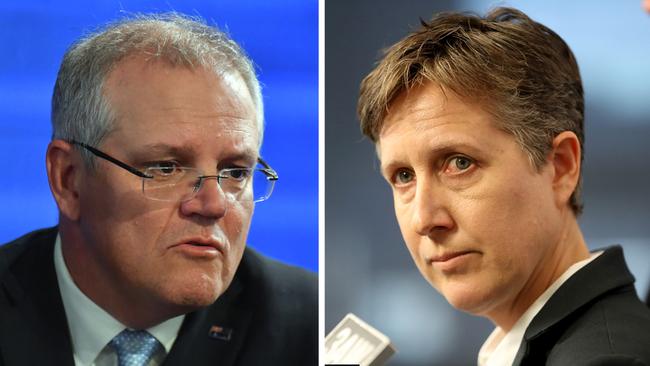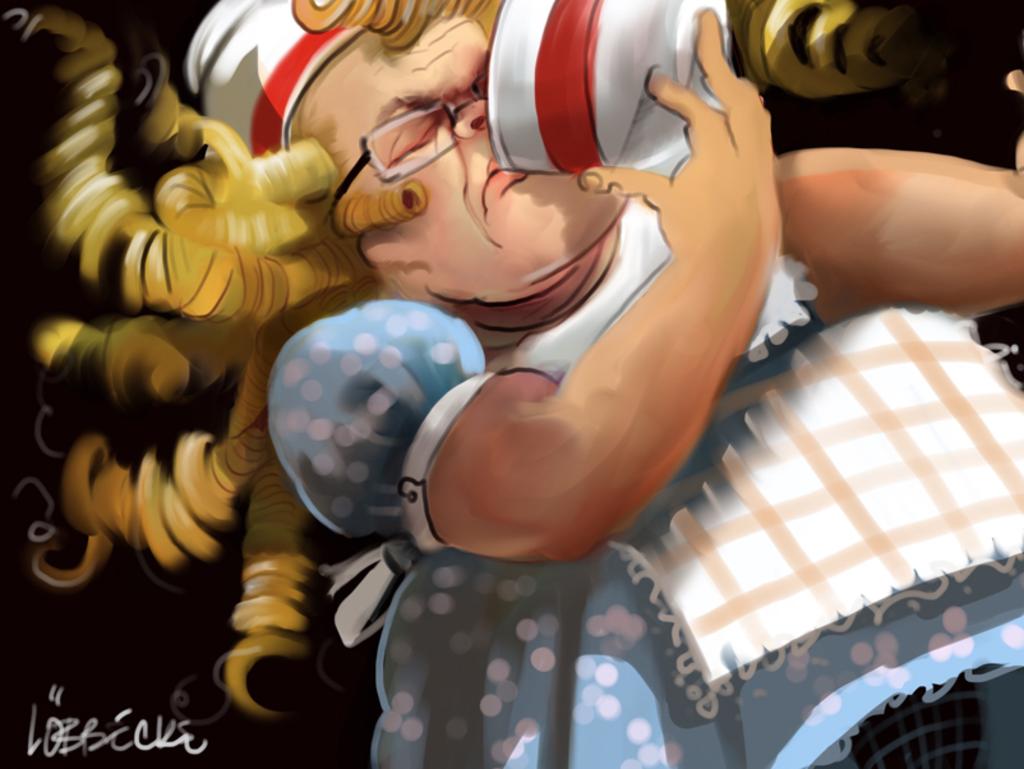Why Scott Morrison, Sally McManus can’t meet in middle on IR reforms

That’s because the two parties come to the negotiating table with profoundly different world views on how the industrial relations landscape should be configured.
The Coalition wants a return to the settings in place pre-crisis, albeit without the spartan like attacks on the trade union movement rhetorically. Whereas the trade union movement takes the view that the crisis has exposed deficiencies in workers’ rights which need to be remedied. The sort of legislative surgery I can’t see Liberals agreeing to.
Of course the details are more complicated than that, but the different starting points may dictate disagreements, followed by a breakdown in negotiations.
Yes, in theory, two sides can learn to compromise and meet somewhere in the middle. But in truth, what each side believes the middle looks like is of itself very different. And that’s before we even consider the political pressures external to theoretical purity. That is, the unions acting in tandem with a Labor opposition, the Liberal Party in thrall to business communities. Not to mention the remaining ideologues in the ranks of the backbench who define their purpose for even being in politics around IR zeal of one kind or the other.
Labor in the 1980s managed to achieve Accord based outcomes with the unions precisely because they had history acting in unison. There was a level of trust built up over many years of affiliation and tradition. Even then the debates were fierce and the outcomes not always agreed on.
The degree of difficulty achieving a new Accord today rises exponentially when a Liberal government attempts the outcome. Notwithstanding the seemingly health trust built up at a personal level between IR minister Christian Porter and the head of the ACTU Sally McManus.
Unions fear that the Liberal Party in government are using them to achieve IR outcomes that help Australia rev its economy back up by ultimately diminishing workers’ rights. That they won’t revisit the areas of reform unions want addressed thereafter.
The government worries that the trade union movement will lull the Coalition into putting IR front and centre in the policy debate, only to pivot towards hostility in an attempt to revive the political success of an anti Work Choices style campaign thereafter.
The Labor opposition are already making such noises.
Scott Morrison is far less ideological than a leader like John Howard was, so perhaps I’m wrong and he can be pragmatic enough to throw out decades of ideological zeal amongst Liberals. Principles put to the side. Doing so is more possible if he can maintain popularity and thereby twist arms behind the scenes.
But he would still have to face up to external ideological critics of such a softening, including within sections of the business community and amongst lobby groups and special interest groups.
Throw in that Porter is deeply ideological on economic issues, including in the IR space, and might therefore not be the right minister to oversee such a non-ideological agenda into the medium to longer term.
Notwithstanding his relationship with McManus.
Peter van Onselen is a professor of politics and public policy at the University of Western Australia and Griffith University.






While there have been encouraging signs that the Coalition government and the trade union movement can work together during this COVID crisis, it is highly unlikely that consensus driven approach will last in its aftermath.